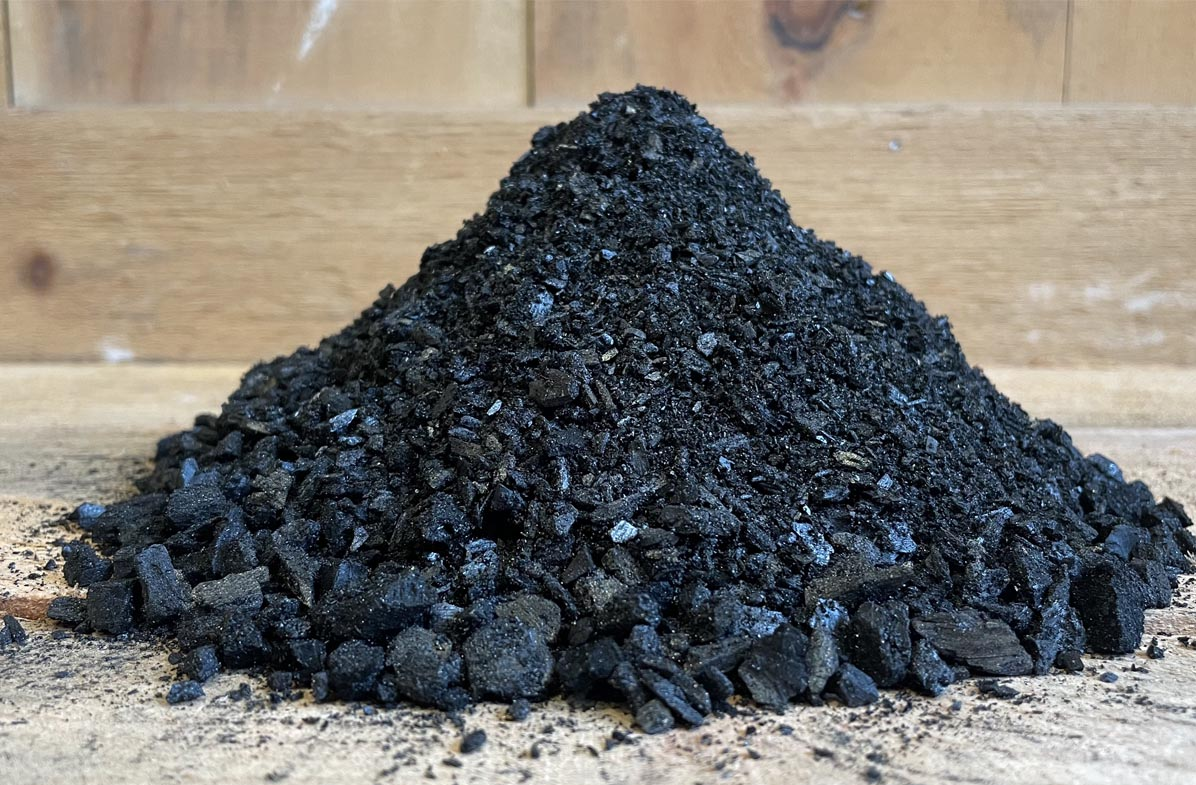
Canadian Biochar Made in Ontario
Biochar: a natural solution for a sustainable future
Sustainably produced from 100% wood, our biochar is a carbon-rich material that enhances soil health and structure, improves water retention, supports agriculture, horticulture, and even environmental remediation. Beyond its practical benefits, biochar helps fight climate change by capturing and storing carbon for generations.
Transform your land and the planet with biochar—sustainability starts here.

